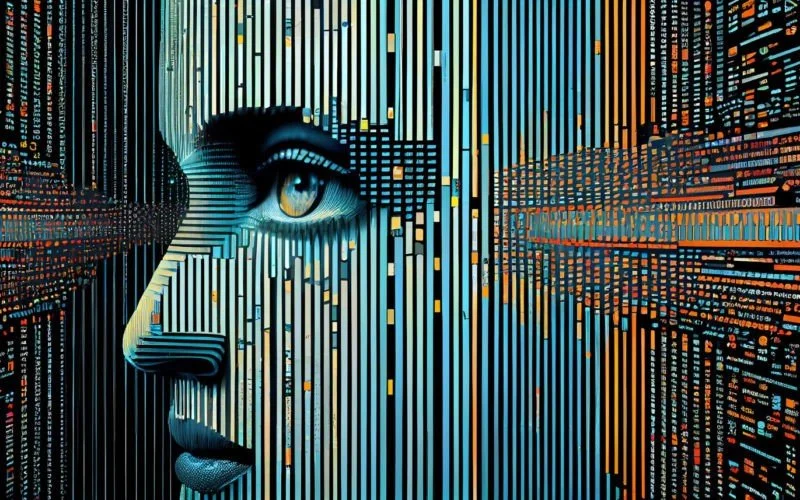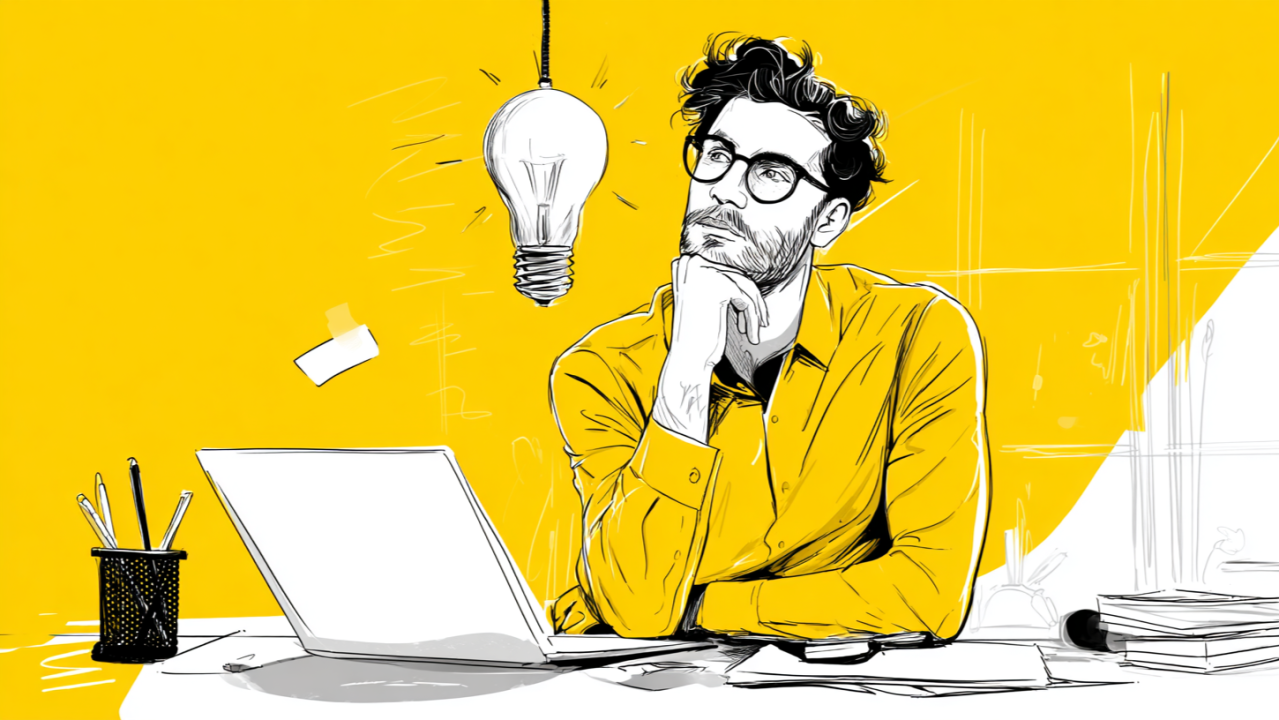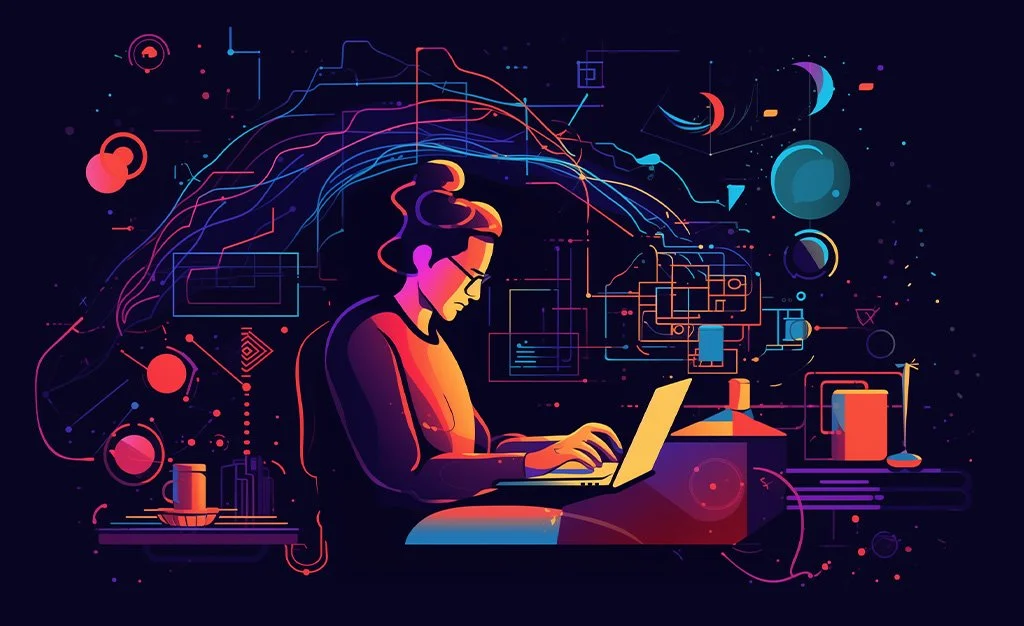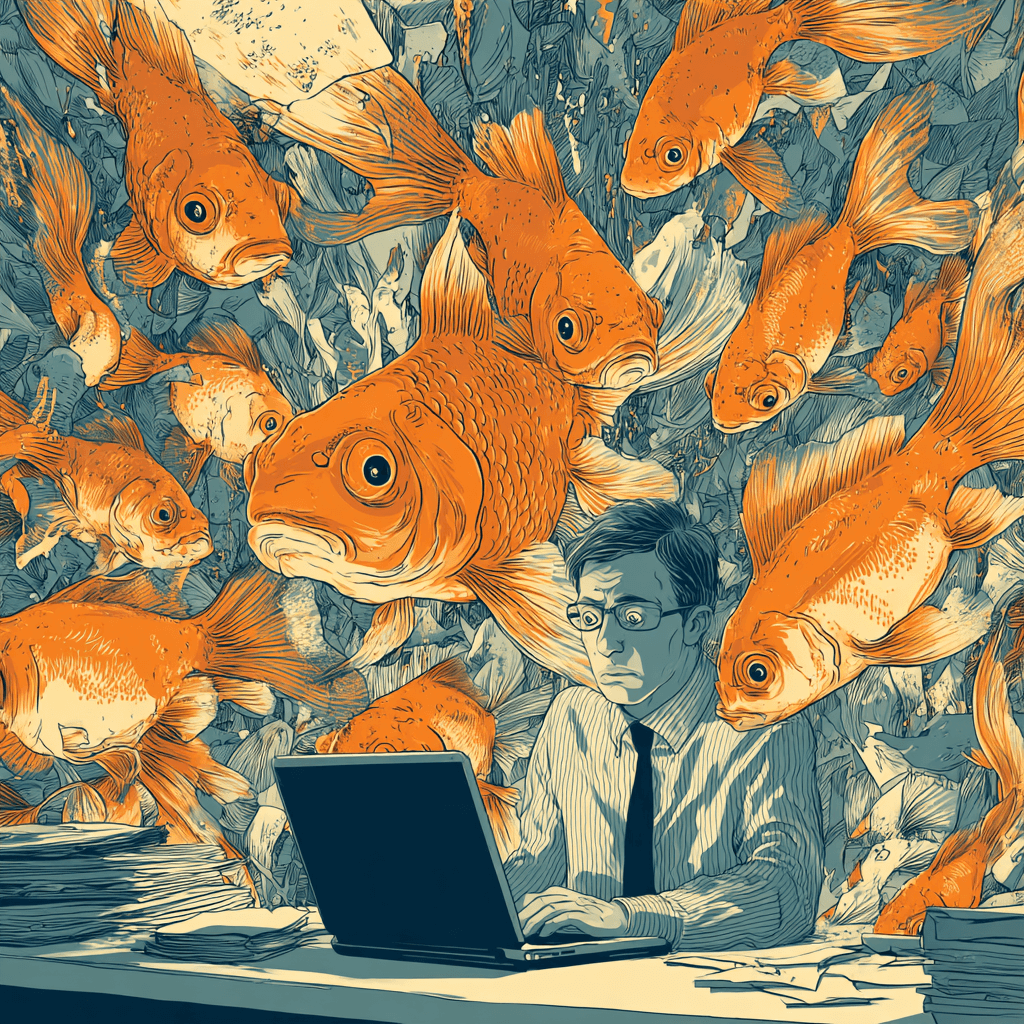Design Talk
Notes from the process — B2B branding, AI-powered creativity, inspiration, and the designs who keep me thinking.
The Cost of Physical and Digital Distractions for Creative — and How AI Can Help You Focus
AI can’t replace creativity — but it can protect it. By handling the noise, the repetition, and the constant digital clutter, AI gives creatives back what’s become a rare luxury: quiet focus. In a world filled with barking dogs, buzzing phones, and endless notifications, even one protected hour can spark your best ideas. Because creativity doesn’t come from constant motion — it comes from stillness, and the tools that help you stay there.
Design Warfare: How to Win the Battle for Bold Ideas in B2B
In B2B, creative reviews can feel like a battlefield. I never walk in empty-handed — I go in with weapons: case studies, proof points, and a clear “why” behind every design choice. It’s not about defending wild ideas; it’s about showing that bold, strategic creativity drives results. You don’t just sell design — you win it.
Is prompting the same as designing? The answer is maybe.
Is prompting the same as designing? Maybe—but not in the way you think.
Prompting saves time, but it doesn’t replace the craft of design. In my work, AI tools like Figma Make, Canva, Synthesia, and Adobe Firefly act as accelerators—helping me move past bottlenecks and focus on storytelling, systems, and meaning.
The numbers back it up: 67% of creatives save 3–5 hours a week with AI, and 72% believe it will be standard in design within two years. That’s not just efficiency—it’s a shift in how teams collaborate, explore ideas, and bring concepts to life.
AI isn’t the driver of design. It’s the co-pilot. And when we use it that way, we create faster, explore deeper, and keep creativity at the center.
My Creative Toolkit and How AI Fits In
My creative toolkit keeps expanding as AI weaves into the tools I use every day. From Figma Make for quick prototypes to Synthesia for every video I produce, AI is speeding up the repetitive work so I can focus on design thinking and storytelling. Adobe is still the leader—Photoshop, Illustrator, and Firefly now come with powerful generative features built in—but every platform in my stack is evolving.
I’m still searching for that one perfect end-to-end tool that can handle text as smoothly as Adobe while telling complex B2B stories. We’re not there yet, but each new capability gets us closer. Until then, the real value of AI is simple: more time back for intentional design. Let’s not lose that mentality in the rush to automate.
Turning Long-Form into Many: AI’s Role in B2B Short-Form Design
In today’s digital world, attention spans are shorter than a goldfish’s. That’s why B2B brands can’t rely on long resources alone—buyers expect content that’s fast, simple, and easy to digest. Short-form posts, quick videos, and modular designs help capture attention before it swims away.
Mastering AI Tools to Overcome Creative Obstacles — and Why This Will Look Completely Different in a Few Months
AI is reshaping B2B creative—but it’s still stuck in old habits.
While tools like Midjourney, Runway, and ChatGPT have unlocked new ways to research, design, and produce visuals, most AI engines are still trained on massive libraries full of outdated corporate clichés—cold boardrooms, stiff handshakes, and generic “tech” backdrops. The result? Creative that misrepresents what modern B2B should look like.
The problem shows up everywhere—from warped text rendering to surreal, irrelevant imagery. A recent AI-generated “compliance risk” visual proves the point: unreadable type, flashy effects, and a sterile aesthetic that’s miles away from today’s brand storytelling.
Brands like Vanta, Asana, Revolut, Venminder, and Roots AI are redefining the look of B2B with approachable, design-forward creative. But until AI is trained on these modern examples, it will struggle to distinguish what’s fresh and effective from what’s outdated and overused.






